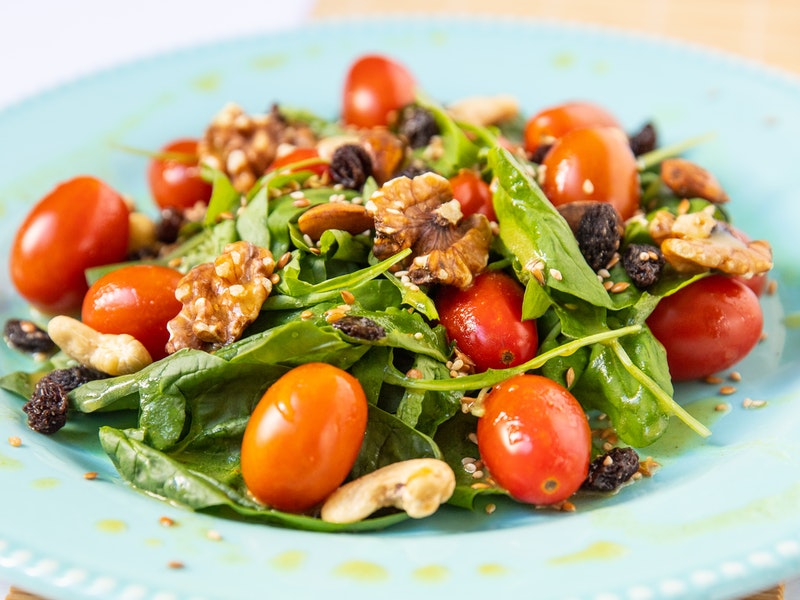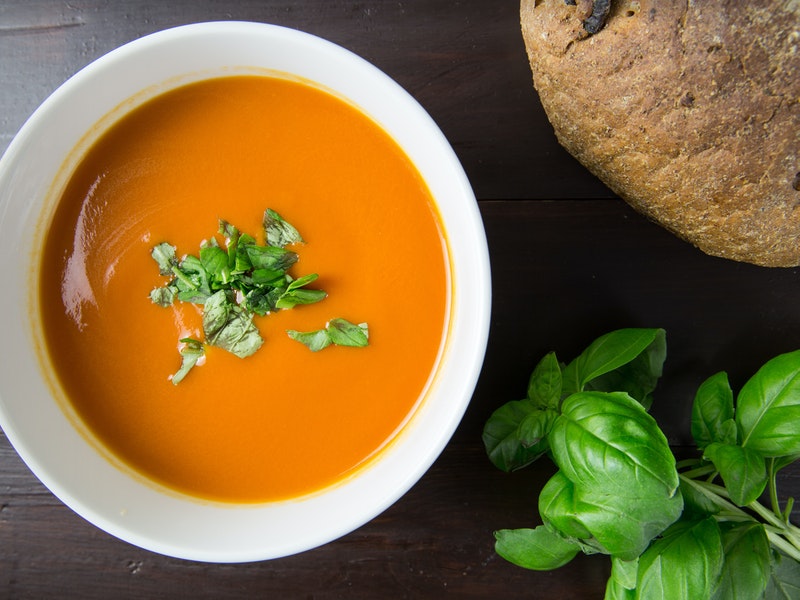Suggest a colorful, delicious chef’s salad for lunch.

- I personally use a wide varieties of greens, and vegetables
- Can add avocado, olives, seeds and nuts (except peanuts)
- Some patients’ guts do not tolerate the skin of eggplants, peppers, tomatoes, and white potatoes, and you may want to avoid these in your salad.
- Can add any protein source from the list of proteins that was used for breakfast to make a Chef’s salad
- If you are adding cheese, suggest a cheese that was made from goat’s milk, sheep’s milk, or imported cheese that were produced in France, Italy, or Switzerland. Most of these products contain A-2 Casein (as opposed to A-1 Casein), which may be better tolerated by your gut
- Suggest tossing your salad with a teaspoon of Cold-pressed virgin olive oil and a teaspoon of MCT oil.
- For a beverage, can use filtered water, herbal tea, coffee, or leftover smoothie from your morning drink.
DINNER SUGGESTIONS:
We anticipate that your appetite will be suppressed after a hearty breakfast and a hearty lunch like the ones outlined above. The purpose of dinner is to dull any feelings of hunger. The goal here is to have this small meal not later than 6 PM, and not to have a large evening meal that will interfere with your sleep.

- Dinner should consist of a small bowl of vegetable soup, made with cruciferous vegetables of your choice:
- Bok choy, broccoli, Brussels sprouts
- cabbage, cauliflower, collard greens
- kale, Swiss chard, mustard greens
- ocean vegetables such as kelp and seaweed
- As a general rule, you should avoid eating large evening meals and avoid bedtime snacks. I am aware that this runs counter to most common eating patterns in our society, but large dinners (going to bed with food in the stomach) is one of the major causes of poor sleeping habits and chronic fatigue syndrome.
- Feel free to add fresh herbs to your soup
- In the past I told patients that it is okay to have a single glass of wine (preferably red wine with your evening meal), if this helps you to relax. I must point out that recent studies on alcohol consumption suggest that alcohol ingestion is harmful to the human body in any amount. A safer sleep aid may a cup of Chamomile tea before bedtime.
My patients often ask me, “what should I do if I get invited out to dinner, Doc?” Here’s what I do: I tell the waiter that I am vegetarian and I ask for a bowl of vegetarian soup [every restaurant in America has soup on the menu]. I order, and enjoy a bowl of soup. When the waiter asks for my main course, I will generally order grilled salmon or another acceptable seafood such as grilled shrimp. I tell the waiter that my doctor does not like me to eat large meals at night and I request a carryout bag for my dinner. That way, I can enjoy the dinner conversation and have my delicious dinner meal as part of my breakfast the following morning.
Next Article: HealthChek™: Chronic Fatigue – Managing Your Sleep to protect your microbiome
